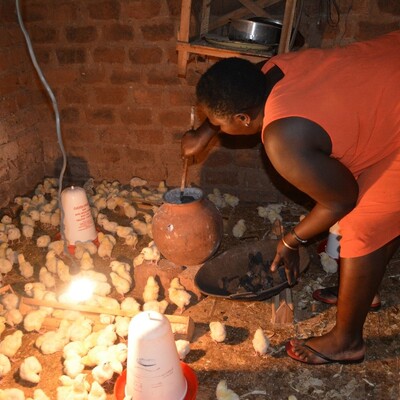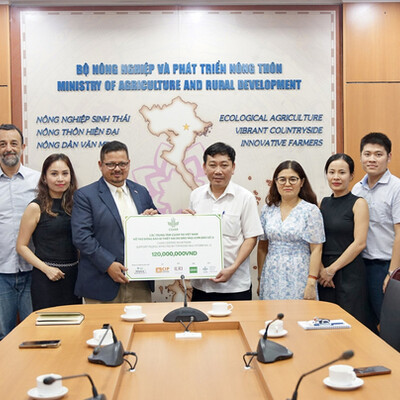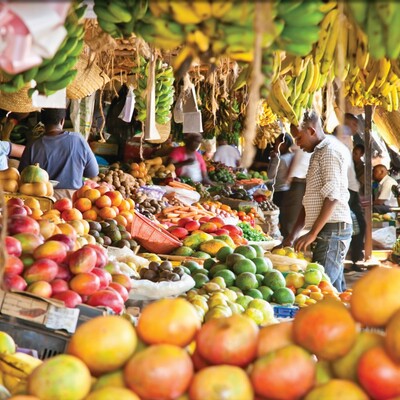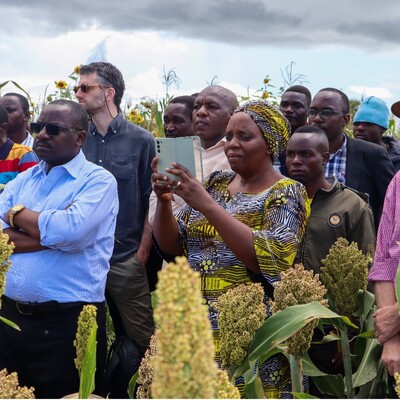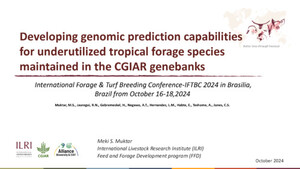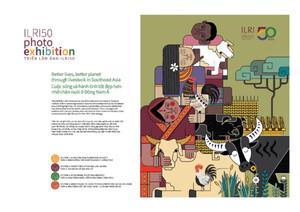
Storytelling experiences from the AgrifoodChain workshop
ILRI events are often designed to explore alternative methods of engagement that maximize sharing and learning. The recent AgriFood Chain Toolkit Conference – Livestock and Fish Value Chains in East Africa was one of these events.
The conference was sponsored by two CGIAR Research Programs (or CRPs) – ‘Livestock and fish’, and ‘Policies, Institutions and Markets’. Its purpose was to bring together value chain researchers and practitioners to discuss value chain analysis issues and tap practitioners’ experiences with quantitative assessment of value chains. The underlying agenda was to popularise the AgriFood chain toolkit developed by the two sponsoring CRPs and to tease out ideas to enrich it and make it more useful for practitioners. This was a rather ambitious objective considering the relative lack of contact and communication between value chain practitioners and researchers in general.
Storytelling at the heart of the exchange
To address these objectives, the event organisers wanted to focus on personal experiences from both practitioners and researchers. The red thread of the conference thus became storytelling. All participants – some of them responding to the call for interest on the Linking smallholder farmers to dynamic markets discussion group – were invited to propose different contributions, eventually leading to:
- Fourteen stories
- Thirteen posters
- Eight learning events which focused on tools and approaches (from the toolkit or otherwise) to discuss how to apply these tools and approaches – much like the posters
- Four peer assist cases (two on aquaculture, one on the pig value chain and one on extension services in the dairy value chain)
To make sure these contributions were effective, online coaching was provided prior to the event.
In various ‘storytelling circles’ the participants shared their value chain experiences and two of them performed in plenary. The learning events and poster session helped participants swap stories of tools and approaches, and finally the peer-assists (sessions where a storyteller receives structured feedback and advice to tackle a concrete problem) provided useful tips to all participants based on the participants’ personal experiences.
Unstructured storytelling also featured in the field visits on the second day and stories from the chains were fed back to the workshop analysis.
ILRI communication roles in the event
ILRI communication and KM staff played prominent roles in the event. It was designed and facilitated by Ewen Le Borgne (KMIS team) and Muthoni Njiru (public awareness team) interviewed participants, took photos and collected all the posters. The team also documented discussions and stories on the wiki page.
Using this alternative workshop design and bringing communication and storytelling to the heart of the event was strongly supported and encouraged by event’s main organizer: Jo Cadilhon. He wanted the emphasis to be on active knowledge exchange rather than a more passive consumption of information.
Results and lessons
The evaluations by almost all participants showed that storytelling was a very welcome approach. Most participants mentioned the storytelling circles and peer assists as the high points of the workshop.
The approach also created a space for dialogue between value chain users and researchers who do not normally meet and reflect together. This proved very positive.
The event also surfaced a number of challenges (and related opportunities):
- The focus on practitioners’ quantitative analysis of value chains was challenging as the stories showed that many of the practitioners tend to follow their gut feeling and ‘streetwise’ common sense rather than systematic tools. The storytelling approach did help to highlight their complex experiences and the need to build a rapport between actors before looking at possible tools and approaches.
- Storytelling is great but it does not necessarily come naturally – not everyone is a great storyteller. The coaching is essential. Online coaching worked to some extent but really started two weeks prior to the event and could have started earlier. The coaching on the final morning was welcome, yet some storytellers needed more guidance.
- Similarly, peer assists require strong coaching to ensure the case presenters focus on a concrete, personal and rather well-defined (narrow enough) case that other participants can reflect upon.
- While powerpoint has its problems, we need to avoid falling into a storytelling ‘trap’; if stories become the default mode of presentation we may miss opportunities to surprise the audience. And, storytellers may also seize their moment to monopolise the space.
- Some researchers said it was against their nature to engage with fragments of information (stories, peer assist cases etc.) which are not backed up with facts and hard evidence. Combining more ‘scientific’ ways to share information with more ‘free-format’ approaches such as stories could yield better results for a mix of actors.
- The posters were more technical and require dedicated time to be absorbed and visited by most participants. Some suggested going round every poster one by one.
- The field visits were initially not well synthesized by the visitors – despite instructions. A session at the dawn of the last day helped everyone sharpen their insights.
- The toolkit itself requires much more emphasis – and presentation of its many components – if it is to be seriously assessed by practitioners.
The lessons are extremely useful for upcoming events. And many participants – surveyed about concrete next steps they intend to take after this workshop – already confessed their plans to use storytelling and peer assists in their own activities.
Find full minutes of the event
Discover the posters featured at the conference







